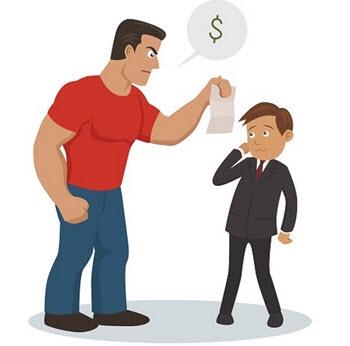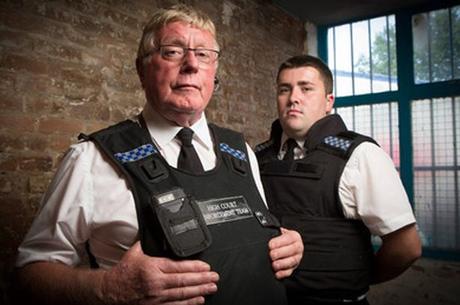I have featured previous posts focusing on debt and ways to sort your debts. However what happens if you're unable to get your debts in order and there's that dreaded knock at the door? It's important to be knowledgeable enough to know your rights, should you be unfortunate enough to have bailiffs at your door.

What debts can a bailiff call for - Did you know that bailiffs or enforcement agents as they are better known can only call for certain debts? These debts include things such as council tax, court fines, child maintenance payments and of course county court judgement defaults (ccj). Bailiffs are usually instructed by courts to collect on a claimants behalf. They cannot collect credit, or catalogue default payments unless the default has been transferred to a CCJ. A debt collector is not a bailiff and has no rights to collect payment from you.
When can they call? - They have to send notice of a visit so it's likely you'll know when they are due. They cannot call between the hours of 9pm - 6am.
Can they force their way in? - It's a common myth that Bailiffs can force their way into your home. This is further highlighted by programmes such as "Can't pay we'll take it away". However this programme deals with high court enforcement which do have more powers than your everyday county court enforcers. They cannot force their way into your home on a first visit in most circumstances. They can't push past you and they can't enter your home if only children are there. They can only enter through a door in a peaceful way with permission. However this will change should a second visit be needed such as in the case of a walking possession order. The advice on most websites is to refuse them entry unless you have the means to pay your debt.

What can they take - Once in your home they will probably start to snoop around and make lists of what goods you own to sell at auction. They can't take everything and have to abide by strict rules when it comes to seizing possessions.
They cannot take - essentials such as clothes, cookers, fridges etc. Work tools and equipment under a certain amount or anything that does not belong to the person named on the debt. However they will usually require proof of whom the goods belong to.
They can take - luxury items such as televisions, stereos, jewellery, games consoles, cars and other high value goods.
If goods are taken, it's likely there will be a bailiff fee in top of the debt you already owe. If you are able to make a part payment towards the debt then the bailiffs may allow a few extra days for you to try and get the rest of the money. They may also arrange a payment plan to help you pay it off. Taking goods is usually a last resort.
Remember bailiffs are human too. They have families and are just doing their job. If you feel intimidated by them then call the police. They cannot force their way into your home and should not act like bullies. Talking to them and making an attempt to sort the debt is the best way to deal with them once you've let them in. Of course dealing with your debts before it gets as far as bailiffs is the best solution all round.

